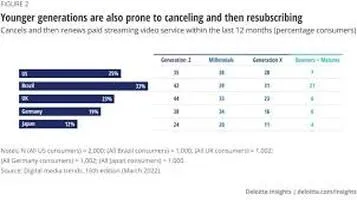Digital Downloads: A Revolutionary Shift in Content Consumption
Digital downloads refer to the process of acquiring software, media, or other digital content directly from the internet to a user's device, bypassing the need for physical media. This method has become increasingly popular due to its convenience, speed, and accessibility. Users can instantly access a wide range of content, including music, movies, e-books, software applications, and video games, from various online platforms and marketplaces. Digital downloads eliminate shipping costs and reduce environmental impact by minimizing physical production and waste. Furthermore, they often offer features such as automatic updates and cloud storage, enhancing user experience. As internet connectivity improves globally, digital downloads continue to revolutionize how consumers access and enjoy content in the digital age.

In an era where technology increasingly dictates the pace and pattern of our daily lives, digital downloads have emerged as a transformational force, radically altering how we access, consume, and engage with various forms of content. Whether it's music, movies, books, software, or video games, the digital download revolution has streamlined content delivery, offering unprecedented convenience and accessibility. This review delves into the multifaceted world of digital downloads, examining their benefits, challenges, and overall impact on content consumption.
Convenience and Accessibility
One of the most compelling advantages of digital downloads is the sheer convenience they offer. Gone are the days when consumers had to visit physical stores to purchase media or software. With digital downloads, a vast array of content is just a few clicks away, available for immediate access. This shift has been particularly beneficial in the realm of software and video games. Platforms like Steam, Epic Games Store, and various app stores allow users to download and install applications instantaneously, bypassing the need for physical media.
Similarly, digital music and video services such as iTunes, Amazon Prime, and Spotify have revolutionized how we consume entertainment. Users can purchase or stream their favorite songs, albums, or movies without ever leaving their homes. This level of accessibility is also a boon for people living in remote areas, where access to physical stores might be limited.
Environmental Impact
Another significant benefit of digital downloads is their positive environmental impact. The production, packaging, and distribution of physical media contribute to carbon emissions and waste. By contrast, digital downloads eliminate the need for physical materials, reducing the carbon footprint associated with manufacturing and transportation. This shift towards digital consumption aligns well with growing environmental awareness and the push for more sustainable practices.
Cost Efficiency
Digital downloads often prove to be more cost-effective for both consumers and producers. Without the need for physical production and distribution, companies can save on overhead costs and pass on some of these savings to consumers. Sales, discounts, and bundles are more easily managed and distributed in the digital realm, offering consumers better deals and more purchasing flexibility. Additionally, digital platforms frequently provide free updates and patches, ensuring that users always have access to the latest versions of their purchased content.
Space-Saving and Portability
One of the understated yet incredibly impactful advantages of digital downloads is the physical space they save. Traditional media formats like CDs, DVDs, and books require storage space, which can quickly accumulate and clutter living environments. Digital downloads, on the other hand, reside in cloud storage or on personal devices, freeing up physical space. Moreover, the portability of digital content means that users can access their libraries from virtually anywhere, provided they have an internet connection. This is particularly useful for travelers and individuals with dynamic lifestyles.
Challenges and Criticisms
Despite their numerous advantages, digital downloads are not without their challenges and criticisms. One significant concern is the issue of digital ownership. Unlike physical media, where ownership is clear-cut, digital downloads often come with licensing agreements that can restrict how and where content is used. For instance, digital rights management (DRM) can prevent users from sharing or transferring their purchased content, leading to frustrations and limitations that do not exist with physical media.
Another challenge is the dependency on internet connectivity. While digital downloads offer the convenience of immediate access, they are contingent on reliable internet connections. In regions with poor internet infrastructure, this can pose a significant barrier. Additionally, large file sizes for high-definition movies or AAA video games can be cumbersome to download, requiring substantial bandwidth and storage capacity.
Security is another area of concern. Digital downloads can be susceptible to piracy, hacking, and malware, posing risks to both consumers and producers. Companies must invest in robust security measures to protect their digital content and ensure safe transactions for users.
The Future of Digital Downloads
As technology continues to evolve, so too will the landscape of digital downloads. The advent of faster internet speeds, cloud computing, and enhanced security measures will likely address many of the current challenges. Moreover, innovations like blockchain technology could revolutionize digital ownership, providing clearer and more secure ways to manage and transfer digital assets.
In conclusion, digital downloads have undeniably reshaped the way we consume content, offering unparalleled convenience, cost efficiency, and environmental benefits. While challenges remain, the ongoing advancements in technology and infrastructure promise to further refine and enhance the digital download experience. As we move deeper into the digital age, it is clear that digital downloads will continue to play a pivotal role in how we access and enjoy various forms of media and software.






